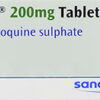Overview of Allopurinol
Allopurinol is a medication primarily prescribed to manage elevated levels of uric acid in the blood, a condition known as hyperuricemia. It is most often used in chronic gout or gouty arthritis patients, preventing gout attacks. Allopurinol functions by inhibiting xanthine oxidase, an enzyme responsible for converting hypoxanthine to xanthine and then to uric acid.
Dosage and Administration
The recommended dosage of allopurinol depends on the severity of the condition. For mild cases, the usual starting dose ranges between 100 mg and 300 mg once daily. In more severe conditions, higher doses may be prescribed, up to 800 mg daily. Administration should be oral, with doses often taken after meals to enhance absorption and minimize gastrointestinal discomfort.
Pharmacokinetics and Metabolism
Allopurinol is rapidly absorbed from the gastrointestinal tract, with peak plasma concentrations occurring within 1.5 hours after oral administration. It metabolizes primarily into oxypurinol, an active metabolite with a longer half-life, allowing for sustained efficacy. Renal excretion is the primary route of elimination for both the parent drug and oxypurinol.
Potential Drug Interactions
Allopurinol may interact with several other medications, altering their effects. Concurrent use with azathioprine or mercaptopurine may necessitate a dosage adjustment of these drugs, as allopurinol inhibits their metabolism, increasing toxicity risks. When administered with warfarin, the effects of anticoagulants may be potentiated, thus requiring closer monitoring.
Patient Monitoring Recommendations
Regular monitoring of serum uric acid levels is advised to assess treatment efficacy. Patients with renal impairment require tailored dose adjustments and continuous renal function evaluation. Liver function tests may also be necessary due to potential hepatotoxic effects. Monitoring these parameters ensures therapeutic effectiveness and safety.
Mechanism of Action
Allopurinol operates through competitive inhibition of xanthine oxidase, an enzyme crucial for purine metabolism. By reducing the production of uric acid, allopurinol decreases serum and urinary uric acid concentrations, thereby mitigating the formation of urate crystals commonly associated with gout.
Side Effects and Adverse Reactions
Common side effects of allopurinol include gastrointestinal disturbances, particularly nausea and diarrhea. Infrequent yet severe reactions may involve skin rashes and hypersensitivity, sometimes manifesting as Stevens-Johnson syndrome. Hepatotoxicity and nephrotoxicity are other rare but significant concerns, necessitating ongoing evaluation.
Contraindications and Precautions
Allopurinol is contraindicated in patients who demonstrate hypersensitivity to the drug or any of its components. Caution should be exercised in patients with compromised renal or hepatic function, as adjustments in dosing might be required. Additionally, particular care is necessary when prescribing to individuals with a history of severe allergic reactions.
Therapeutic Uses
Beyond gout treatment, allopurinol is also utilized in managing kidney stones associated with excess uric acid and hyperuricemia resulting from cancer therapies, such as chemotherapy. It helps prevent acute uric acid nephropathy, thereby maintaining renal integrity during extensive cytotoxic treatment.
Patient Counseling Points
Educating patients on the importance of maintaining adequate hydration is essential, as this aids in preventing kidney stone formation. Patients should be informed of potential hypersensitivity reactions and be advised to seek immediate medical attention if severe rashes or other allergic symptoms appear. Encouraging dietary modifications to reduce purine intake can further enhance therapeutic outcomes.
Pediatric Use and Considerations
Pediatric dosing of allopurinol is calculated based on body weight, typically ranging from 10 mg/kg/day, not exceeding 400 mg daily. Pediatric patients often require more stringent monitoring for adverse reactions due to differences in drug metabolism and sensitivity. Adjustments in dosage should be based on uric acid levels and therapeutic response.
Impact on Pregnancy and Lactation
The safety of allopurinol during pregnancy is not well-established, and it should be used only if the potential benefit justifies the potential risk to the fetus. During lactation, caution is advised as allopurinol and its metabolite, oxypurinol, are excreted into breast milk, which may pose risks to the nursing infant.
Storage and Stability
Allopurinol should be stored at room temperature, away from excessive moisture and heat. Ensuring the medication is securely closed and out of reach of children minimizes the risk of accidental ingestion by minors. It is crucial to maintain its stability and efficacy throughout the usage period.








Reviews
There are no reviews yet.